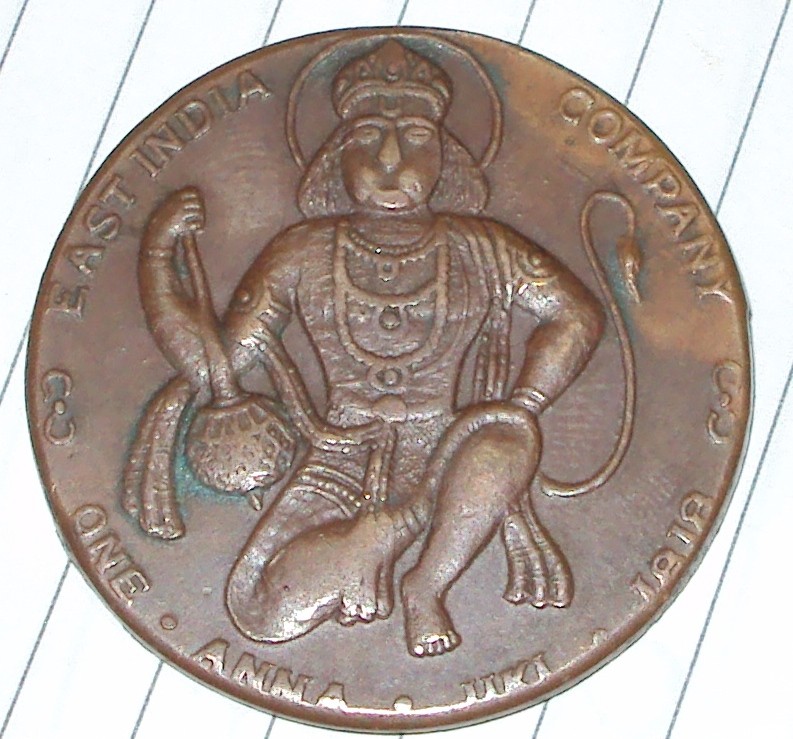The currency code for Rupees is INR, and the currency symbol is ₹ today.
Way back in the 6th century BC, India was one of the first issuers of coins, with the first
documented coins being called 'punch-marked' (pana) coins. Symbols were stamped on the metal blanks to transform them into coins.
Probably, the blanks were slightly heated before the symbols were
stamped. The symbols were stamped, one after the other, at various
points on the blank, with punches, each punch having one distinct
symbol. Hence, the popular name 'punch-marked coin.'
 |
| Punch marked coins |
India's coinage designs frequently changed over
the next few centuries as various empires rose and fell. By the 12th
century, a new currency referred to as Tanka was introduced.
 |
| India Temple Ram Tanka with Hanuman |
 |
| Indian Sikh temple token |
During the
Mughal period, a unified monetary system was established and the silver
Rupayya or Rupee was introduced. |
| Aurangzeb rupee |
The states of pre-colonial India minted
their coins with a similar design to the silver/copper Rupee with variations
depending on their region of origin.
 |
| 1818 coin |
In 1825, British India adopted a silver standard system based on the
Rupee and was used until the late 20th century. Although India was a
colony of Britain, it never adopted the Pound Sterling/British currency.
In 1866, financial establishments collapsed and control of paper money
was shifted to the British government, with the presidency banks being
dismantled a year later. That same year, the Victoria Portrait series of
notes/coins was issued in honor of Queen Victoria, and remained in use for
approximately 50 years.
 |
| 1862 East India Company |
After gaining its independence in 1947 and becoming a republic in 1950,
India's modern Rupee (INR) was changed back to the design of the
signature coin. The Indian Rupee was adopted as the country's sole
currency, and the use of other domestic coinage was removed from
circulation. India adopted a decimalization system in 1957.
 |
| Coins evolution |







No comments:
Post a Comment